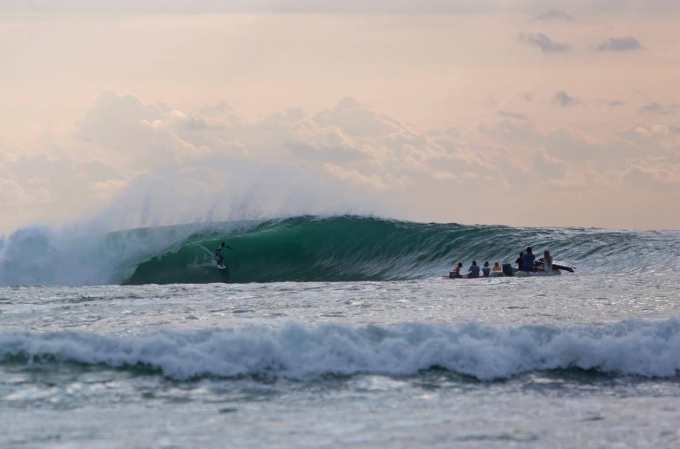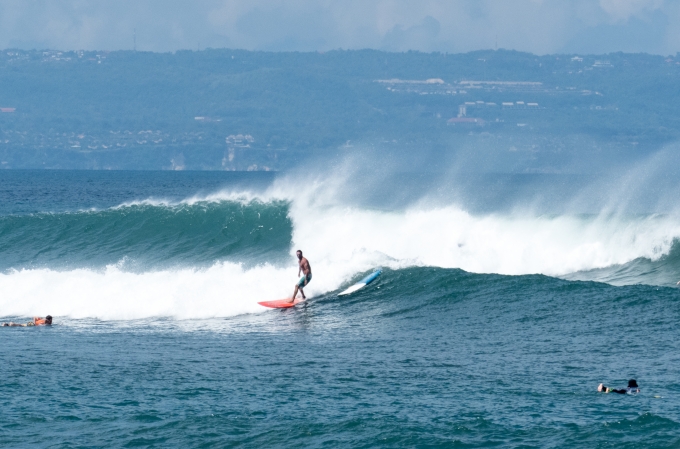Guide to Surfboards
December 12, 2016 | 0 Comment
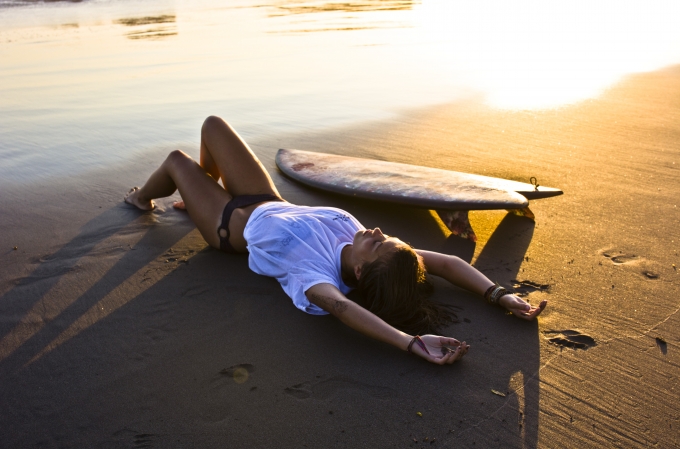
Need advice on which surfboard is best for you? Answer the questions below to find the most suitable board for improving your surf skills!

What is your experience level?
Complete beginner:
You are completely new to surfing or have had a few lessons but are still learning how to ride a board.
Start with a softboard (aka foamie). These boards have the most volume and buoyancy allowing you to practise your pop ups with more stability and get a feel of being on a surfboard. As you are likely to fall off or let go of the board often, these boards are great as they aren't as dangerous as hardboards if they hit you or other surfers on the head.
Beginner:
You have surfed a few times but are still learning plenty.
If you are surfing small waves, try a longboard. These are long, wide boards with plenty of buoyancy and stability. They are a good step down from foamies but are covered with polyester or epoxy resin so are not soft. The length of longboards means less paddling is required in order to catch a wave, and the buoyancy and width of longboards means it is easier to paddle and balance on.
If you are surfing bigger waves, try a shorter board such as a mini malibu so that you can go through the waves more easily.
Intermediate:
You are comfortable riding and catching bigger waves.
Try a shortboard or fish so that you can duck dive through big waves and can turn the board easily. These boards require more effort when paddling and are more difficult to balance on. If you enjoy longboarding, then choose a smaller, more performance-style longboard.
Advanced:
You are comfortable surfing in all kinds of conditions as well as doing turns, cutbacks and other manoeuvres.
You can start to find a board for every kind of condition.
How much do you weigh?
If you are light (under 90kg) a shorter board will be easier for you to turn on. If you are heavier (over 90kg), stick to a longer and thicker board to avoid sinking under the water. You may be the same level as another person but will need different sized boards based on your weight.
What type of waves you will be riding?
For slow or mushy waves, use a longboard or fish. For faster or steeper waves, use a short board; these fit the face of the wave and are less dangerous in these conditions.
What is your fitness level?
Surfing is an exercise so the fitter you are when you surf, the easier it will be. Surfing requires strength, stamina and balance. Strength is required to push yourself up from the board and paddle against strong waves. Stamina is required to stay out in the water for long periods of time and still have the energy to paddle. And lastly, balance is required for staying on your board when sitting, lying and standing on it. If you exercise regularly or do other board sports, you will be able to progress to a shortboard more quickly.
How often do you surf?
If you don’t surf often, it is better to go for a longer board. You will have a lot more fun on a board you can surf on rather than struggling with a shortboard each time you surf. If you do surf often, you could get a shorter board, or even get a board for each condition.
__________________________________
For those of you interested in buying a board, we interviewed Patrick, an Italian shaper from Redz surf shop in Canggu for his advice.
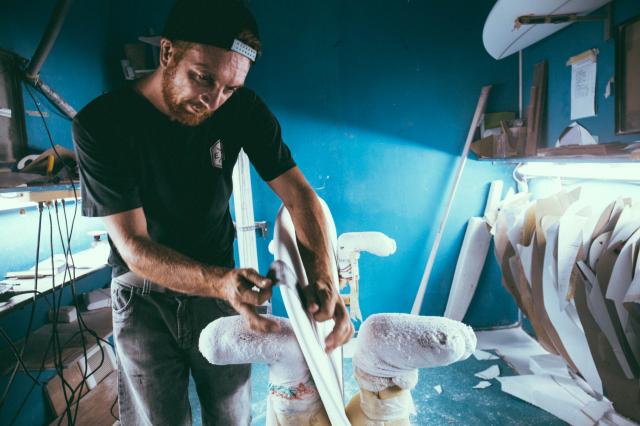
Hi Patrick. How long have you been shaping boards for?
A long time! I started at the age of 18 when I was in Hawaii. I wanted to stay a while so had to find a job to pay my bills. There was one guy I was sharing a room with who was doing repairs in a factory and he would take me there at night to teach me. It was fun. After that I moved back to Italy and opened a factory, and now I am here in Bali with Redz!
Very interesting! So what kind of board do you recommend for surfers looking to buy their first board?
For a beginner, a mini malibu or malibu. A longboard is good but it is a different style; it is also more difficult to enter the water with this board and you need more skill to ride this. If you are catching white water, a longboard is fine, but for a larger green wave it is harder to use. A mini malibu or malibu is good for beginners because it has more stability than a shortboard.
A malibu will not fit all conditions though, so a shortboard is best for bigger waves. You can’t duck dive through large waves on a malibu. Beginners are sure to catch fewer waves on a shortboard, but will be able to surf bigger waves.
Do you recommend getting to a certain level before buying your first board?
You can buy a board at any level but different boards fit different conditions, so I’d recommend seeing which waves you want to surf first. When you begin surfing you will start with small waves. When you start to feel stronger and more confident you might like to try bigger surf. Before buying, I’d also recommend renting different boards to see which one is good for you.
How can surfers tell if they are using the right board for them?
When you go in the water, count the waves and see how many you get and how many you don’t get. If you catch 6 waves out of 20, it is not the right board for you. People often think smaller boards are better, but you need to be able to catch the waves to get respect from other surfers.
Lastly, what price should people expect to pay at Redz? Do they need to pay more to get a better board?
Not necessarily, the price reflects the material, the brand, the shape and so on. The average price of my surfboards is 4.5 to 5 million rupiah, or 6 million for a longboard.
Thanks for some great advice Patrick. See you in the water!
Redz is a great option for buying surfboards, but there are also other shops in Canggu such as Dylan, Deus and Board Riders Echo Beach. Board Riders sell all the premium brands like Channel Island, Rip Curl etc which range from 8-11 million IDR. Deus boards are slightly more expensive at 13-17 million IDR.
If you are still not sure what to go for, you could consider the following... ;)
The Dick Board:

The Table, ridden by Kelly Slater (how did he do this?!)
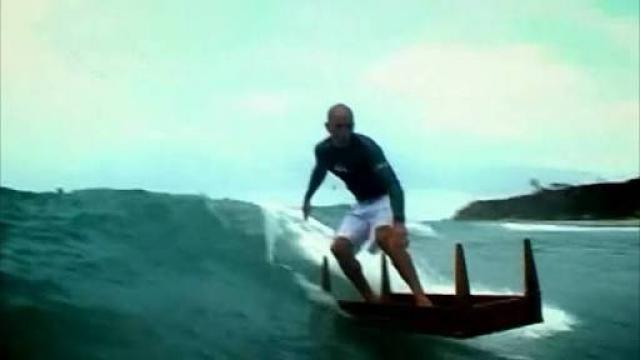
All in all, it is important to choose the right board, so take your time and try out different boards before you buy. It can take months of daily surfing to get good, so be patient and make sure you buy a board to suit your body and level.
Categories
Popular post
Surfing Spots: An Advanced Guide of Surfing Beaches in Bali
May 22, 2017
Bali is every surfer’s paradise. There are tons of surfing spots around Bali whether you...
A General Guide to Surfboard Fins
September 21, 2016
(cover photo credit @victorcrespo.photo) This is by no means a definitive guide to...
